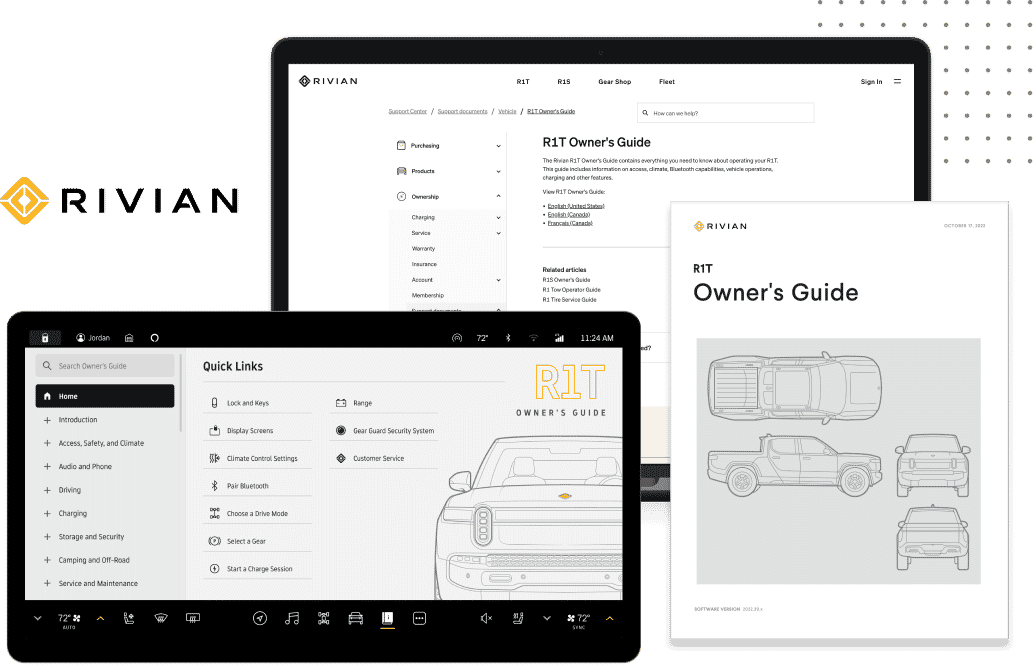Customer Success Story
Towson University Uses MadCap Flare to Teach Online Help Authoring Best Practice
Goals
- Teach online Help design and authoring best practices
- Provide hands-on experience with authoring software
- Make class accessible for non-technical students
- Support the XML standard for content
- Publish both WebHelp and HTML Help
Benefits
- All students have been able to develop online Help that meets or exceeds essential requirements
- Flare XML editor lowers barriers to authoring XML content
- Flare's flexibility supports students' different preferred workflows and processes
- Students gain experience publishing user assistance content in widely adopted WebHelp and HTML Help formats
MadCap Software Solutions and Services:
Towson University recognizes that today's competitive employment environment requires graduates to come to the market with professional business skills. To that end, the metropolitan university, which is located just outside of Baltimore, offers several educational tracks to prepare students for their careers. One of its newest classes uses MadCap Flare to teach students best technical communication practices for online Help.
Using Flare, Towson students with little or no technical writing background have been able to create state-of-the-art, structured online content based on the XML standard. In doing so, students are gaining valuable expertise required to support the real-world documentation needs of today's businesses and government organizations.
Flare offers a way to develop better documentation and online Help without having to shutdown and re-engineer the processes you already have. Businesses need tools like Flare.
David Dayton, PhD Professor, Towson University
Towson's first Creating Online Help class is part of a new Technical Writing and Information Design track introduced in 2008 within the university's larger Professional Writing Master of Science graduate program.
Led by David Dayton, a Towson professor and PhD in technical communication and rhetoric, the Creating Online Help class relies on MadCap Flare as the authoring solution of choice for helping students to develop and publish online user assistance in the form of both WebHelp and compiled HTML Help.
"For our new Creating Online Help, we needed authoring software that would enable students to practice Help content development and publishing best practices first hand," said Professor Dayton. "MadCap Flare has helped us to meet and exceed our goals. In the first semester this class was offered, every student created a project that showed off all the essential features of online Help–and in some cases a few more, using features in Flare not available with older authoring tools."
Modern Architecture and Flexibility for Today's Needs
Professor Dayton had previously taught technical writing classes at another university using Adobe FrameMaker®, RoboHelp® and Dream- Weaver. For the Towson class, he chose to use MadCap Flare because it offered an innovative, topic-based approach to content publishing; supported XML, the emerging standard for enterprise content; was affordable; and was capable of producing modern WebHelp and HTML Help.
"Originally, I was concerned about using XML-based authoring software to teach a class to non-technical students. However, the XML editor in Flare allowed students to use XML before they understood it," Professor Dayton said."
He adds, "I like the way the Flare editor shows the XML structure on the side. Because of the way XML is exposed in Flare, students can get a fundamental understanding of XML without being overwhelmed by the language, itself."
Another important aspect of Flare is that its topic-based approach to content development is flexible and supports an author's preferred workflow and processes.
"A big barrier to adopting authoring tools is that many of them require writing teams to re-engineer their processes," Professor Dayton noted. "Flare offers a way to develop better documentation and online Help without having to shutdown and re-engineer the processes you already have. Businesses need tools like Flare, which allow you to make a smooth transition."
The ability of Flare to import Microsoft Word also provided a practical benefit for the class. Because students only had two-and-a-half hours of lab time each week to work with Flare, they needed a way to develop their Help topics in Word at home and then import those topics into Flare during class. Additionally, the editor in Flare 3.0 was designed for more technical users, so allowing students to create their topics in Word helped to speed development time. Significantly, when students imported their topics from Word, Flare retained all the formatting.
However, Professor Dayton says, "Going forward, our classes may no longer need to rely on a two-step process to create their online Help projects. I had an opportunity to see a demo of Flare 4.0 at a recent training session. With the more intuitive and responsive interface in version 4.0, it looks like my students will be able to author and publish their content using only Flare."
In the meantime, Professor Dayton is excited by the early success of the program, noting, "We have several students who have used their classroom online Help projects to address needs within the companies where they are working and have been able to create online Help solutions that are far superior. It's a very promising start."





